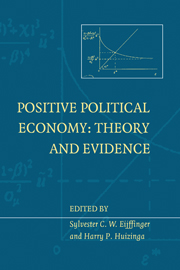Book contents
- Frontmatter
- Contents
- List of figures
- List of tables
- List of contributors
- Foreword
- Introduction
- I Monetary institutions and policy
- II Exchange rate policy and redistribution
- 7 Exchange rate anchors and inflation: a political economy approach
- 8 Why capital controls? Theory and evidence
- Comment
- 9 The political economy of the Exchange Rate Mechanism
- 10 Unemployment benefits and redistributive taxation in the presence of labor quality externalities
- Index
Comment
from 8 - Why capital controls? Theory and evidence
Published online by Cambridge University Press: 05 September 2013
- Frontmatter
- Contents
- List of figures
- List of tables
- List of contributors
- Foreword
- Introduction
- I Monetary institutions and policy
- II Exchange rate policy and redistribution
- 7 Exchange rate anchors and inflation: a political economy approach
- 8 Why capital controls? Theory and evidence
- Comment
- 9 The political economy of the Exchange Rate Mechanism
- 10 Unemployment benefits and redistributive taxation in the presence of labor quality externalities
- Index
Summary
This is a nice chapter for at least two reasons. First, it combines theory with empirical results. Second, it uses an eclectic approach, i.e. it does not rely on a single, often narrow, theory to explain the world but rather draws on a number of theories.
Theory
Of course, the chapter also has its weaknesses. Let me start with the theoretical section, which is actually very similar to that in Alesina, Grilli, and Milesi-Ferretti (1994). It would be nice if the introduction made it clear how this contribution differs from previous papers by the author and made it clearer what the specific contribution of this particular chapter is. In this connection, the existing literature on the political economy of capital controls should be referred to, for example, an article by Epstein and Schor (1992).
The theory section describes a number of arguments in favor of capital controls. For an IMF official, this is not easy to accept because the IMF tends to promote free international capital flows and thus typically argues in favor of removing these controls. Indeed, the theoretical section does reflect some tension between, on the one hand, providing arguments in favor of such controls, and, on the other hand, counseling against capital controls by pointing out that capital controls tend to be counter-productive. If countries believed this counsel, they would almost never use them.
- Type
- Chapter
- Information
- Positive Political EconomyTheory and Evidence, pp. 248 - 252Publisher: Cambridge University PressPrint publication year: 1998



